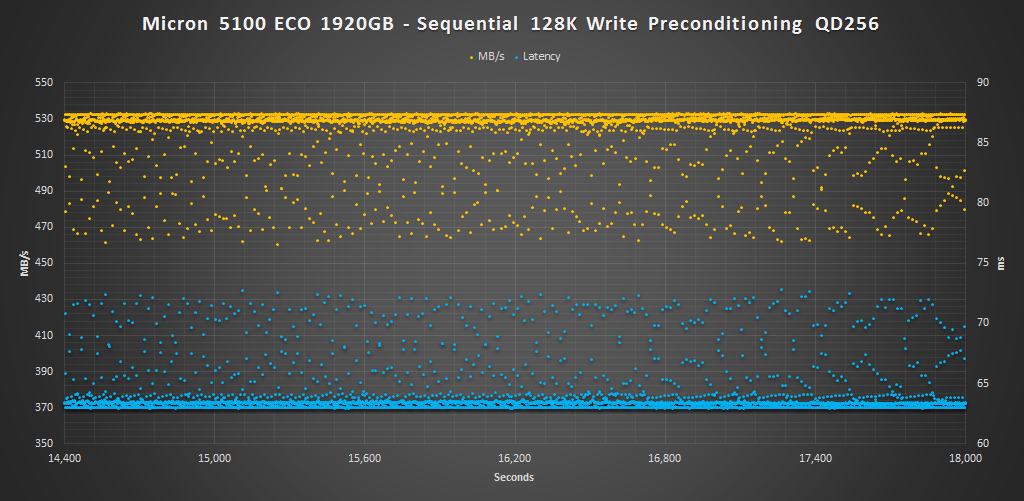128KB SEQUENTIAL READ/WRITE
Sequential performance is measured similarly to the other two tests before. The drive is first secure erased to get it in a clean state. Next, we precondition the drive with a 128KB sequential write workload at QD256 until the drive is in a steady state. Finally, we cycle through QD1-256 for 5 minutes each for writes and then reads. All this is scripted to run with no breaks in between. The last hour of preconditioning, the average MB/s, and average latency for each QD is graphed below.
Both drives are rated for 520MB/s write throughput. The results above show that during our preconditioning the 5100 ECO and MAX are both able to live up to their claim. They both seem to suffer from some slight variance in performance, however, with about 10% of the results dropping below spec.
When compared to the rest of our test pool under 100% writes, most of the SSDs have similar performance. The only key differentiator is that the Samsung SM863 and PM863 both have higher QD1 performance.
In sequential write testing, again, as SATA drives, most of them perform the same from QD4 and up. At QD1 the Samsung SSDs both have an advantage, but at QD2 on, the Micron 5100 series takes the cake.
 The SSD Review The Worlds Dedicated SSD Education and Review Resource |
The SSD Review The Worlds Dedicated SSD Education and Review Resource | 

